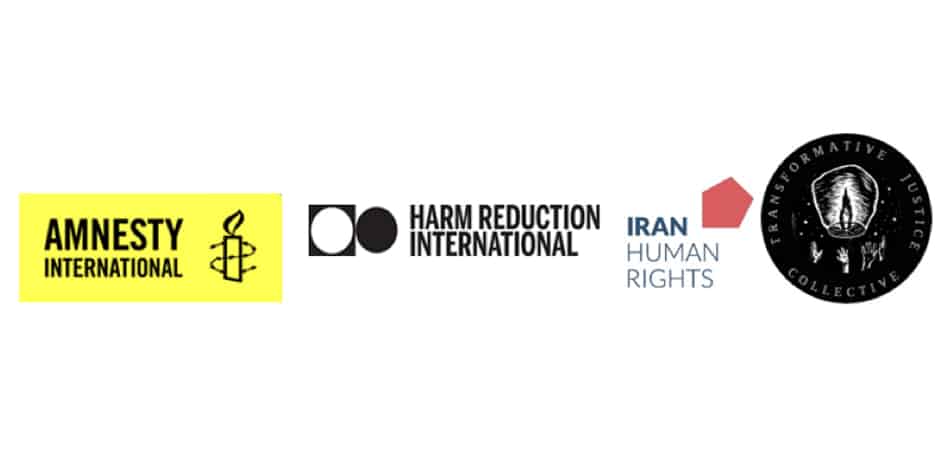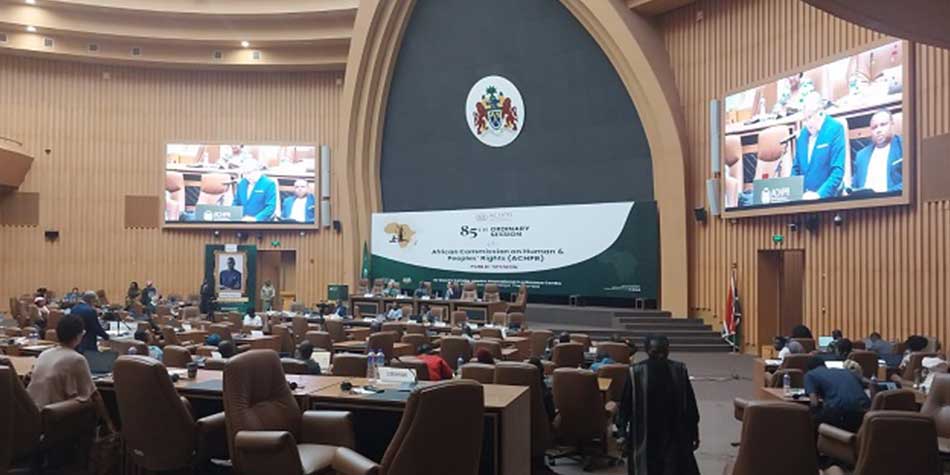
World Drugs Day: UNODC must act to stop the use of death penalty for drug-related offences and urge states to end executions
Statement
By Amnesty International, Harm Reduction International, Iran Human Rights, Transformative Justice Collective, on 27 June 2023
On 26 June, the UN Office on Drugs and Crime (UNODC) is marking World Drugs Day with the theme “People first: stop stigma and discrimination, strengthen prevention”, and launched another edition of the World Drug Report. Sadly, as has been the case over the years, UNODC has failed to raise concerns over the continued use of the death penalty for drug-related offences despite a sharp increase last year in known executions for these offences.
Even though drug-related offences do not meet the threshold of the “most serious crimes” – namely those of extreme gravity involving intentional killing – to which the use of the death penalty must be restricted under international law, hundreds of executions continue to be carried out each year for these crimes.
Yearly reports by Amnesty International and Harm Reduction International show that the situation has sharply deteriorated during 2022, as the recorded number of people executed for drug-related offences increased by more than 100% in 2022 compared to the previous year. As reported by Amnesty International, executions for drug-related offences amounted to more than a third of all executions recorded globally. Executions for drug-related offences were confirmed in Iran, Saudi Arabia, Singapore and China – likely occurring in Vietnam as well, where state secrecy is prevalent.
In 2022, Iran escalated executions of people sentenced for a drug-related offence by 93% compared to 2021. Our organizations recorded more than 250 executions in Iran for drug-related offences, which accounted for more than 40% of all known executions carried out in that country over the year. In Saudi Arabia, civil society organizations recorded 57 executions for drug-related offences after the end of a moratorium on executions for drug-related offences that the Saudi Human Rights Commission said was put in place in 2020. In Singapore, where executions resumed in 2022, all 11 executions recorded were for drug-related offences. Amnesty International and Harm Reduction International also confirmed executions carried out for drug-related offences in China but had insufficient information to provide a credible minimum figure.
People who are marginalised, including because of their socio-economic status, ethnicity, mental or intellectual disability, and nationality, continue to be disproportionately impacted by the use of the death penalty for drug-related offences. For example, Harm Reduction International reported that 40% of those executed for drug-related offences in Iran identified as Baluchi, an ethnic group that represents around 2% of the total population.
Additionally, our organizations have documented how the use of the death penalty for drug-related offences in several countries frequently follows proceedings that violate safeguards established under international human rights law and standards to guarantee the protection of the rights of those facing execution. For instance, Singapore executed a man in April 2023 accused of conspiring to traffic cannabis despite fair trial concerns, including lack of evidence of possession of drugs during his arrest, lack of access to a lawyer and an interpreter during interrogation and the lack of legal counsel during his latest attempt to reopen his case in late 2022.
Despite tireless efforts by civil society organizations to fight against the death penalty for drug-related offences, international mechanisms in charge of designing and monitoring drug policies have remained silent. Notwithstanding the sharp increase in executions and the distressing cases in which the death penalty was applied over the last year, UNODC and other international drug control mechanisms have failed to publicly condemn these egregious violations of international law. The World Drug Report, published today by UNODC, once again omits any mention to the application of the death penalty for drug-related offences.
Achieving the abolition of the death penalty demands concentrated and combined efforts by all UN agencies and mechanisms, as mandated by international standards and guidelines such as the UN Common Position on Drugs. Yet, our organizations remain concerned that the active engagement of UNODC and other international drug control bodies to ensure the abolition of the death penalty has stalled despite evidence that their direct engagement has been effective in the past to reduce this unlawful penalty.
UNODC plays a paramount role in ensuring that drug policies around the world uphold States’ obligations under international law. As the year 2022 has shown, the silence of UNODC and other drug control mechanisms regarding the application of the death penalty for drug-related offences can be instrumentalized by the handful of countries that continue applying this cruel punishment in disregard of international law.
Therefore, we call on UNODC and all other UN agencies and international actors to take concrete, urgent actions against the ongoing violations of human rights in the name of drug control that the use of the death penalty for drug-related offences entails. It is crucial for these bodies to not only reject the use of the death penalty but to act in consequence by publicly and privately engaging with Member States that still apply this cruel punishment and ensuring that any support or other form of cooperation and technical assistance does not lead to the application of the death penalty.
UNODC must start playing its part to ensure that drug policies around the world are consistent with international human rights law, including by working towards the repeal of drug laws that still carry the death penalty. Repealing these laws is an essential element in the world’s journey towards full abolition of the death penalty.
Co-signatories:
- Amnesty International
- Harm Reduction International
- Iran Human Rights
- Transformative Justice Collective
Categories
Drug Offenses






